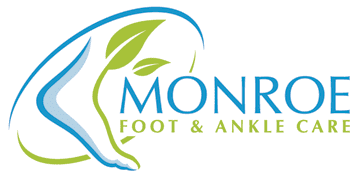You’re having foot surgery. You know where you’re supposed to go and what time you’re supposed to be there. You’re prepared, right? Absolutely not. First, you have to set up your home to accommodate your rehabilitation.
Podiatric physician and surgeon Dr. Elliott Perel of Monroe Foot & Ankle Care in Jamesburg, New Jersey, takes his patients’ well-being seriously, and that includes knowing what they’re going to need after the surgery is done. He’s put together this list of 10 tips on how to prep your house, so your recovery will be as comfortable and as easy as possible.
10 tips to prepare your home before you have foot surgery
Here are the top 10 tips you should follow.
1. Set up your bed on the first (or entry) floor
If your house has more than one level, set up your sleeping arrangements — a bed or a couch — on the first floor or entry-level. With your foot bandaged, the last thing you want is to have to go up and downstairs. Don’t worry about how the arrangement looks — it’s only for a short time.
2. Set yourself up with a bathroom or portable commode near you
You’re going to have to use the bathroom several times a day, so make sure you have one close to where you’ll be spending most of your time. Not only do you not want to go up and downstairs to get there, but doing so makes you a fall risk.
3. Stock up on essentials
Talk with your doctor about how long you’re going to be laid up. Then stock up on everything you’ll need for that amount of time, plus a few days more, just in case. That means canned or frozen food, microwaveable meals (or cook and freeze food to reheat), toilet paper, shampoo, tissues, and any other personal items you use on a regular basis.
4. Stock up on medications
You won’t be in a position to run to the pharmacy while you’re recuperating. Jot down a list of both your prescription and OTC medications, and make sure you have an adequate supply of all of them to tide you over. If your doctor prescribes something after the surgery, ask a friend or relative to pick it up for you.
5. Make sure everything you need is within easy reach
Store food, medications, and extra toilet paper between your waist and shoulder level so you don’t need to bend or stretch. Set your glasses, dishes, and silverware on the kitchen counter so you can grab them easily.
6. Keep your phone close
You’re going to need to make and receive calls during your convalescence. If you only have a landline, make sure there’s an extension close by your bed. If you have a cell phone, make sure there’s an outlet to plug in your charger so you can keep the battery juiced up. You don’t want your phone to die.
7. Get some help
No matter how independent you are, you still may need help with bathing, shopping, or heading to the doctor. Line up a friend or family member who can lend a hand when needed. Or ask your doctor about a service that provides in-home caregivers. Insurance often covers such visits.
8. Install grab bars in the bathroom
Having a foot bandaged and hurting throws off your balance. Getting in and out of the tub or down and up from the toilet may be more challenging than you imagine, and you can easily fall. A grab bar provides stability. Never grab on to a towel rack — it can’t support your weight.
9. Board your pets
Yes, pets can be a comfort while you’re recovering, but if they have the run of the house, you can bet they’ll get underfoot and trip you up. Ask a friend or family member if they can take care of your little one while you’re recovering, or see if a kennel or your vet can board them for a short time.
10. Stow, don’t carry
Don’t carry things around with a bum foot. If you have a walker, attach a basket to the front where you can store your phone, a pen and paper, and any other essential items when you walk around. If you have a cane or crutches, you might want to try a fanny pack or a backpack. Don’t try to cram too much into them, though, as they may pull you off balance and cause you to fall.
Have any questions about what you’ll need for recovery? Give our office a call at 732-328-6798 or send us a message online. We’ll be happy to help you navigate your aftercare as much as your pre-op routine.
